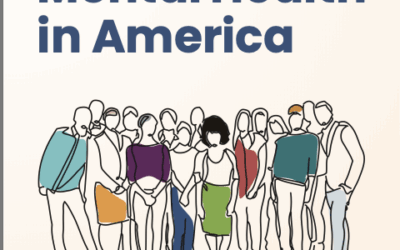Mental Health America (MHA) recently released its 2019 State of Mental Health Report, which ranks all 50 states and the District of Columbia based on several behavioral health and access measures. Minnesota came out on top overall with Nevada coming in 51st.
- Virginia improved in the overall rankings to 33rd, up from 40th in last year’s rankings.
- Much of the improvement in Virginia’s overall ranking was due to increases in youth mental health rankings, which improved to 23rd overall after three years scoring between 45th and 47th.
- The prevalence of youth with a Major Depressive Episode moved from 35th to 23rd.
- The number of youth with a Major Depressive Episode who did not receive treatment improved from 49th to 31st among all states.
- The report shows mixed results for Virginia however, as the state’s overall adult ranking was the worst in 4 years, down to 35th from 23rd last year.
- Virginia’s relative prevalence of adults with any mental illness has worsened steadily over the past four reports, to 40th of all the states.
- Access to a trained mental health workforce is a problem in most of the country, and Virginia ranks consistently near the bottom – 41st in this report.
- The overall access to care in Virginia continued to be low, at 40th among all the states. This ranking includes access to insurance, access to treatment, quality and cost of insurance, access to special education, and workforce availability.
In developing the report, MHA looked at 15 different measures available from every state to determine the rankings. They are not a complete picture of the mental health system, but do provide a strong foundation for understanding the prevalence of mental health concerns and access to treatment.
Rankings are based on percentages for each state collected from the most recently available data, which is generally two years behind. The annual rankings are most valuable in tracking a state’s change relative to other states over time. The impact of the current STEP Virginia plan to expand public behavioral health services, as well as the new Medicaid expansion will be reflected in future reports.
Virginia is making major efforts to start building the continuum of community services and supports that will reduce the need for crisis services and hospitalization, while at the same time making those options readily accessible for those who need them.
Most localities are now implementing “same day access” to a community behavioral health screening, and state funding has increased for several specific programs. However, Virginia is starting from near the bottom, and the challenges keep growing. It will take a sustained, collective effort, more shifts in thinking, and significantly more funding to transform our behavioral health system.
Bruce Cruser, Executive Director
Mental Health America of Virginia



